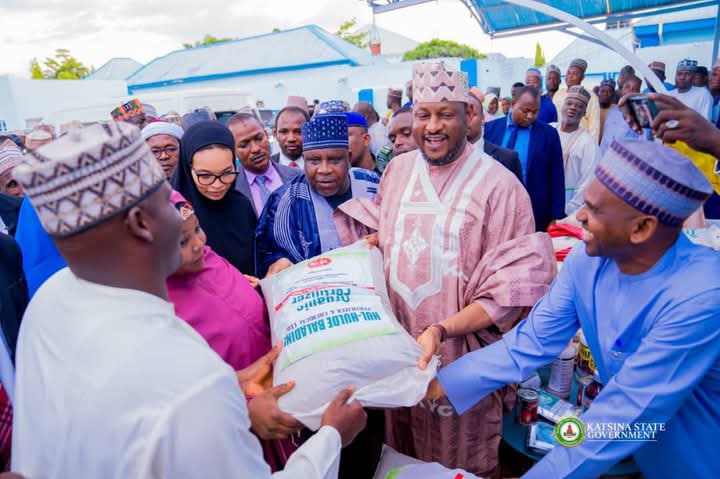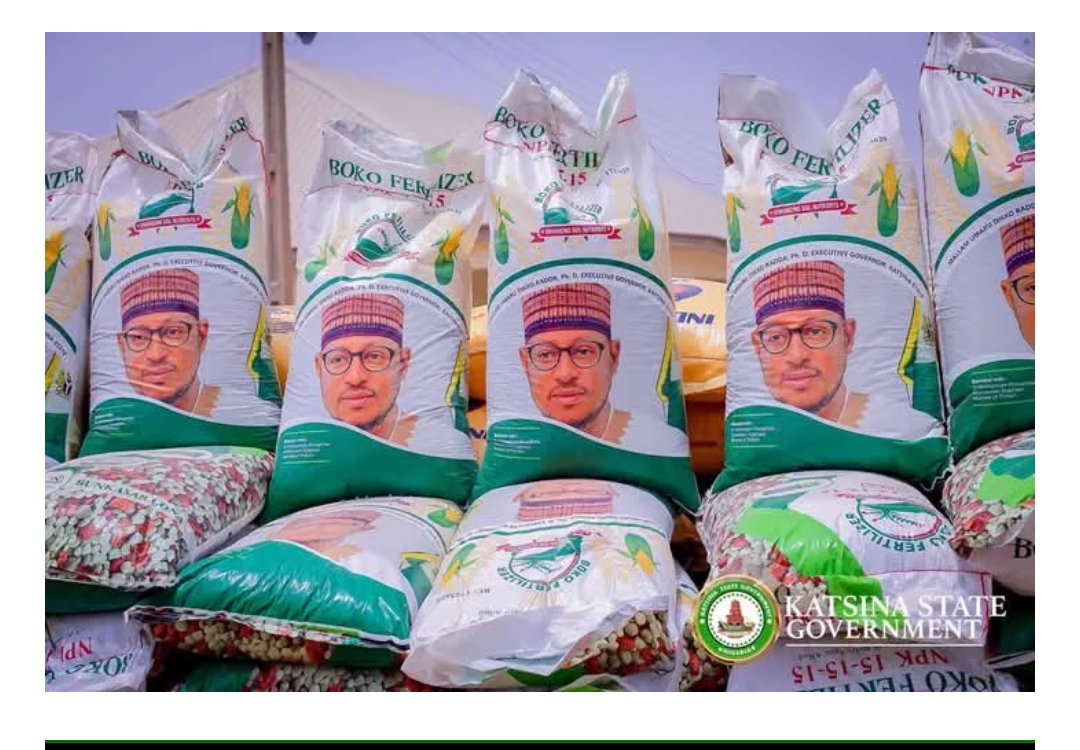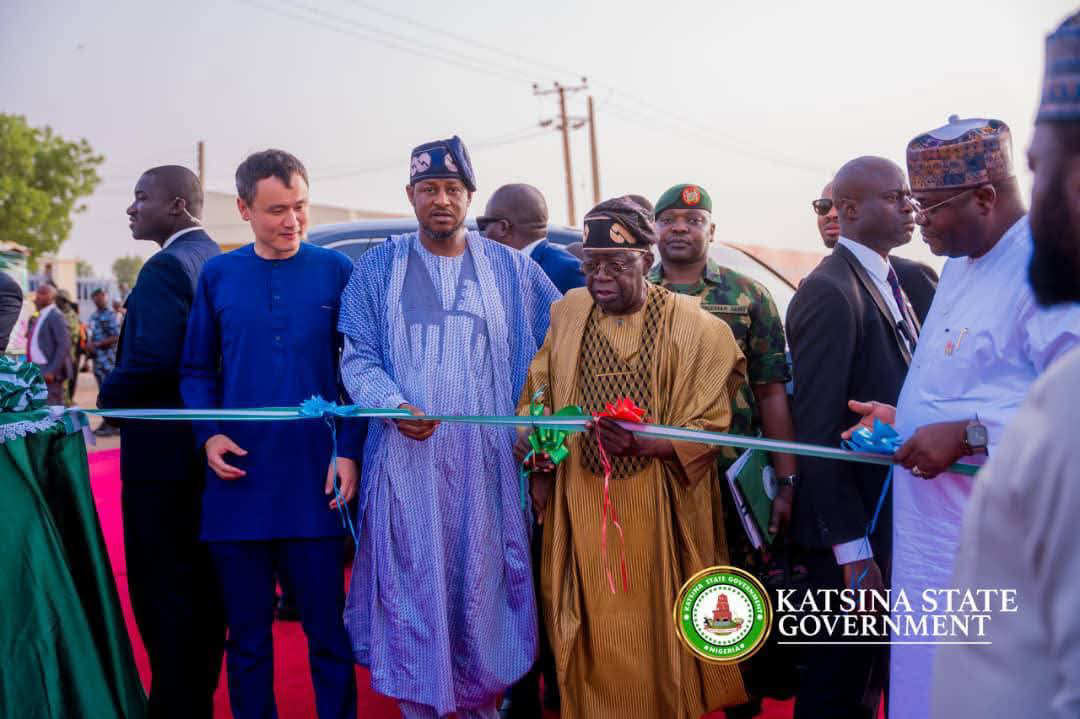When Governor Dikko Umaru Radda took office two years ago, he promised to lift Katsina State’s economy through strategic investments in agriculture. Today, the results are speaking loudly in every corner of the state—from mechanized farming centers in Kafur to solar-powered irrigation pumps in Daura, and from abundant fertilizer distribution in Jibia to empowered smallholder farmers in Dandume.
The latest in a string of agricultural reforms is the launch of the ₦100 million Climate-Smart Agribusiness Empowerment Scheme, a partnership between Katsina State and the African Union Development Agency-New Partnership for Africa’s Development (AUDA-NEPAD). The scheme, unveiled on July 2, 2025, is designed to equip smallholder farmers with modern tools, improved seeds, technical training, and market access—all with the aim of boosting productivity while adapting to climate realities.
“This is not just a routine empowerment program—it is a deliberate investment in our people, in our economy, and in our future,” Governor Radda declared at the flag-off ceremony in Katsina.
Perhaps the most transformative of Governor Radda’s agricultural reforms is the launch of a state-wide mechanized agriculture scheme, which saw the distribution of modern tractors and farm implements to all local government areas in Katsina State. Through the Katsina State Agricultural Mechanization Centre, the government procured tractors and made them available for hire at subsidized rates, ensuring even smallholder farmers can now cultivate larger farms with efficiency and speed.
The tractors have been distributed strategically across all local councils, ensuring every region has access. Mechanized services are also paired with extension support and cooperative mobilization to ensure optimal usage.
Farmers like Malam Abdullahi from Matazu LGA say this has cut their production time in half: “Before, we could only farm one hectare with hoes. Now, we can manage up to four with the tractor. Our yields will be doubled.”
Understanding that mechanization alone is not enough, the Radda administration has consistently backed both wet and dry season farmers with massive fertilizer distribution programs. Over the past two farming seasons, the state has procured and distributed more than 20,000 metric tons of fertilizers, targeting both rainy and irrigated farms.
The fertilizers are part of a broader input support package that includes:
1. Improved, climate-resilient seeds,
2. Herbicides and insecticides,
3. Solar-powered irrigation pumps, and
4. Farm implements like planters and harvesters.
This has ensured not just greater productivity, but also more climate-aware practices across rural communities.
The recently launched Climate-Smart Agribusiness Empowerment Scheme is the most ambitious of the state’s efforts to integrate global best practices into local agriculture. With N63.75 million contributed by NEPAD and N36.25 million from the state government, the program provides targeted support to smallholder farmers, who are the backbone of rural food security.
According to Hon. Salisu Jabiru Tsauri, NEPAD’s National Coordinator, the scheme aligns directly with the African Union's Agenda 2063, which envisions “a prosperous Africa based on inclusive growth and sustainable development.”
The Katsina program delivers:
* Technical training on smart farming practices,
* Improved seeds and access to organic fertilizer,
* Irrigation tools adapted to changing weather patterns,
* Market linkages and cooperative organization.
* Infrastructure Support: Dams, Irrigation and Storage
Governor Radda’s administration has also invested in reviving agricultural infrastructure. Dams are being rehabilitated and irrigation channels repaired across the state to support dry season farming. Additionally, farmers have received thousands of solar-powered water pumps, reducing dependence on unreliable rainfall.
Plans are underway to construct grain storage and aggregation centers, ensuring that farmers not only grow food but also preserve and sell it competitively. With support from the Ministry of Agriculture and the SDGs Office, these storage centers will be complemented by mobile markets and e-commerce linkages.
Governor Radda, himself born in a farming community, and with a Ph.D in Agriculture, has repeatedly emphasized the importance of agriculture to the economic liberation of Katsina people.
“We want our farmers to move from subsistence to commercial production using smarter, climate-resilient approaches,” he said.
To ensure results, the administration is also strengthening agricultural extension services, offering continuous training, and introducing mobile monitoring tools to track performance across LGAs.
Katsina is an agricultural state by nature—but under Governor Radda, it is becoming an agricultural powerhouse by policy. From climate-smart farming and subsidized inputs to mechanized services and infrastructure renewal, the state is laying the groundwork for self-sufficiency, youth employment, and food security.
In a region often challenged by insecurity and poverty, agriculture is now a source of hope—and that is Radda’s green revolution in motion.
Ahmed Abdulkadir is the Board Chairman, Katsina State Radio and Television Services.
Tags
Articles






